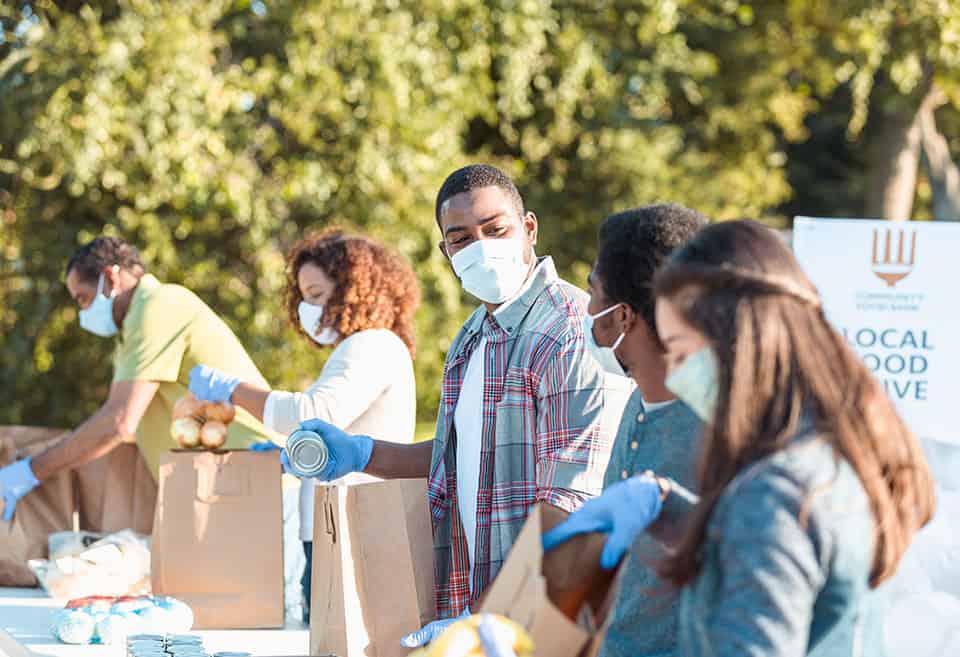Giving to Charity? Follow These Tips.

Every day, many great organizations are working hard to support causes that matter, from curing diseases around the world to helping people in our community. Your donations can be vital to their progress. But not all nonprofits are created equal, and there are many ways to give. If you want to make sure your money does the most possible good, you’ll need to be smart about how and where you give. These tips can help.
1. Reflect on What’s Important
Individuals, corporations, and foundations across America give more than $400 billion to charity each year. While that’s an impressive amount, there are many different organizations in need of support, and a lot of needs to be met. Since you have limited funds, be choosy about where you give.
Consider your own financial situation to determine how much you can realistically afford to donate each month or year, and consider which causes mean the most to you. That way, you’ll be sure to find organizations that are aligned with your personal values and that appreciate your help.
2. Do a Little Research
Whether you give to a large international nonprofit or a local organization, make sure you understand how your money will be used and how well it will support the organization’s stated mission. Online resources like Charity Navigator, Charity Watch, and Give.org can help you make an informed decision.
3. Get a Tax Write-Off
The satisfaction of giving is its own reward, but tax savings are a nice perk. Your donation can potentially provide a deduction at tax time, but keep these things in mind:
- Only donations to 501(c)3 nonprofits are tax-deductible. Many nonprofit groups do not have the 501(c)3 designation, so it’s good to check an organization’s tax-deductible status.
- To claim a tax deduction, you’ll need to keep good records of your donations, such as letters or receipts from nonprofits that acknowledge your donation and amount.
- When you file your taxes, you’ll need to itemize deductions rather than take the standard deduction.
4. Use Your Money Strategically
Along with researching which organizations are effective and well-run, consider whether you should donate only to one organization or split your funds among many.
Say you have $1,000 to donate. If you split it across 10 organizations, each one will appreciate your donation, but their work won’t be greatly affected by the extra $100. If you choose to donate the full $1,000 to a single small organization with a limited donor base, it could make a bigger difference.
5. Consider Noncash Donations
If you own a publicly traded stock that has appreciated in value, and you’ve had it for more than a year, donating this to a qualified charity can provide great tax benefits and help maximize the value of your donation.
Depending on the charity, you may also be able to donate other noncash items such as vehicles, jewelry, household items, or even real estate. Keep in mind that the process for deducting high-value non cash items on your taxes is more complex, so be sure to work with a tax expert.
6. Make Giving Part of Your Estate Plan
Estate planning is an important way to define where your money and property will go after you pass away. Along with helping you provide for your loved ones, an estate plan can ensure that some of your assets will go to causes and organizations you care about. A knowledgeable financial advisor can help you design an estate plan that fits your goals.
7. Watch Out for Charity Scams
Right now, as wildfires, the COVID-19 pandemic, and other tragedies dominate the news, the need for donations to essential charities has greatly increased. But so has the risk of scam artists preying on people’s compassion to trick them into donating to a fake charity. Here’s how you can stay protected:
- If you’re not sure about an organization, check their reputation online first. Don’t be pressured into donating immediately.
- Donate by check or credit card, not cash (which is harder to track).
- Don’t automatically trust an unsolicited email requesting a donation or an email thanking you for a donation you never made. Scammers may pose as legitimate charities by sending phishing emails designed to trick you into sending money or providing sensitive information.
To learn more about charity scams, check out this helpful video.
Committed to Giving Back
Here at BluPeak Credit Union, helping to build stronger communities has been our focus since day one, and your membership helps make it possible. Learn more about our work in our communities.
For tax-related questions, consult a tax professional.





